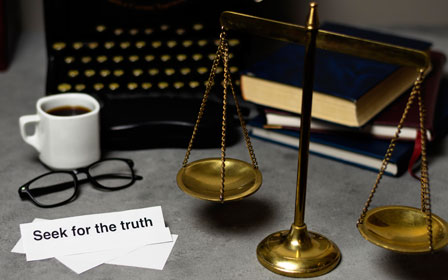Affidavit:
It is a written statement that is made under oath, and commonly used as evidence in court proceedings or for administrative matters . The document states that the facts that the people bring are true. In most jurisdictions it requires a notary to be there when the individual is signing the document.
Assets:
It refers to the valuable items or property that someone owns. These include: cash, equipment, real estate, and proprietary rights. It could include items such as goodwill, and patents. In case of bankruptcy or divorce these assets will be divided equally with the people involved in this case.
Bail:
A person charged with crime can be released from custody, if they pay the amount charged. It is a means of security that ensures they will show up for their scheduled appearance in court.
Bankruptcy:
It is a court process to address financial issues for both individuals, and organisations who are unable to settle their debts, and they need the help of the court to deal with the matter.
Chambers:
Chambers refers to the office of a judge and its staff.
Complaint:
It is a declaration in written form that outlines the wrongs that the other party is accused of doing.
Community service:
It is a special condition given by the court and requires that the accused work for a charitable organisation.
Deposition:
It is a declaration given in front of a law officer under oath. This is typically done to gain information from witnesses for the purpose of legal discovery.
Deliberations:
Deliberations refers to decisions making and discussions that take place when a jury or legal panel is deliberating on a case.
Evidence:
Different documents that contain information will be presented with the intention of influencing the jury or judge to rule in favour of a side.
Fiduciary:
It is either a person or organisation that manages the finances and assets of someone else.
Fraud:
It occurs when someone purposefully tells a lie or hides an important fact that someone else will depend on. It is an issue when someone depends on that information and is harmed.
Guardian:
It is someone who will take the responsibility of a child in case his parents die. They are either appointed by the law or it has been written in a will.
Hearing:
It is a court case where evidence and facts are given on a topic to be examined and at the end a decision should be taken.
Indemnity:
It is a compensation given by another party in case of loss, or damages. It’s a contract in which one party promises to pay for any financial obligations or responsibilities resulting from particular actions.
Inheritance:
It refers to all assets, property, finances, that an individual passed on to his heirs.
Jury:
It consists of a number of men and women selected by the court to listen to the evidence provided during a court trial and at the end give a verdict.
Law firm:
It is an organisation that employs lawyers who specialise in different fields and could provide individuals with legal advice.
Verdict:
The final decision taken by either a judge or jury.
Warrant:
There are two types of warrants, the first one is the arrest warrant where a written document is given to an officer with the right to arrest an individual. The second one is a search warrant that allows a location to be searched for items that can be used as proof in court.






